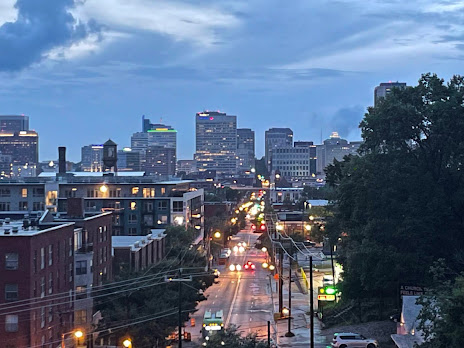Featured
- Get link
- X
- Other Apps
Learning To Fail
What is it about failure that causes so many of us to feel like there’s a sinking hole in the pit of our stomachs?
Some might say it’s an effect of being part of the “participation ribbon” generation. Those familiar with Carol Dwek’s research might say that it’s a product of a “fixed mindset.”
Maybe, it’s a biological code that’s kept humans alive for thousands of years. There are so many theories out there I could write a novel just listing them. What really matters isn’t so much what causes the fear, but how we’ve all learned to cope with the fear and the fallout.
The fear of falling short is something that most of us have never truly been taught to handle. For a long time, failure and criticism were unbearable for me. Despite being taught how to “lose gracefully” and accept responsibility for actions; when faced with a failure. I’ve spent the last three-ish years of my life trying to teach myself how to get back up, to thrive in setbacks, to revel in rejections.
I’m not sure if it’s supposed to get easier, but I have yet to face a fall that hasn’t been crippling (at least momentarily). Failures take on different forms, but they’re everywhere — getting turned down from a job application, being rejected by the girl/guy you like, losing your job. Let’s face it, there are limitless ways to “fail.” What they all have in common — they all suck. They make us feel terrible.
So, what’s my point?
I could spout off cliches, and talk about how all the greatest (in any medium) have only reached their success after countless failures. I could tell you that one day we’ll all reach our dreams and our failures will just blur in the rearview. I could tell you that we can learn to be totally unbothered by our failures if we just keep trying one day.
The problem with that is that I genuinely don’t know what’s ahead of me, let alone anyone else.
That’s not to say that we won’t all end up living happy and fulfilled lives. I genuinely believe that we all have the capacity to end up in our own version of a full life, but to do that, we need to be willing to dig through the rubbish and find the treasure in the trash can.
The real lesson isn’t learning how to get there, but in learning how to enjoy the process. Learning not to take our failures personally is a skill that few people have truly mastered. I’m not saying that we need to be able to keep getting knocked down and pretend like it doesn’t hurt. Of course, it hurts. It doesn’t matter how many times you take a punch to the gut, it’s always going to be awful. The trick is learning to brace for the impact, learn from the mistake, and keep fighting.
It’s like any muscle or skill — the more you train, the stronger it gets. What I’m saying is: take the risk. Do things that you know will be difficult. Try something that scares the hell out of you (try it three times). Apply for the new job. Ask the person out.
I’d like to say that you won’t fall, but that’s not really the point. When you reach the failures, listen to the voice in your head. Change the narrative. You don’t have to be the victim — be the protagonist.
Failures and rejections are not a reflection of who you are or what you’re capable of. They’re just a part of your story. Honestly, probably some of the most interesting parts. No one wants to read a story void of obstacles or setbacks. Why? They’re not interesting or relatable. Now, I’m not saying you should dramatize your struggles. Just recognize that there is no story without them.
Yes, it hurts. Yes, it sucks to fail. That doesn’t mean we can stop trying. We won’t remember the things in life that were easy. When we look back on past journeys, we remember the struggles. We remember the triumphs because we felt the pain of failure.
So, what does it really mean to learn how to fail?
Well, I suppose that answer can be as varied as the ways we fail. For me, learning to fail is about allowing myself to be a little (or a lot) sad for the loss or the rejection. It’s about giving myself the space to feel it out and to be angry or hurt. Most importantly, it’s about making sure that I can pick out the important lessons and use them to plot out my next steps when I'm finished with all that.
Be relentless. Be weird. Be irrational. Do the things that no one believes you can (including yourself).
Oh, and remember, you’re not alone. The only way to get better at failing is to keep practicing.



Comments
Post a Comment